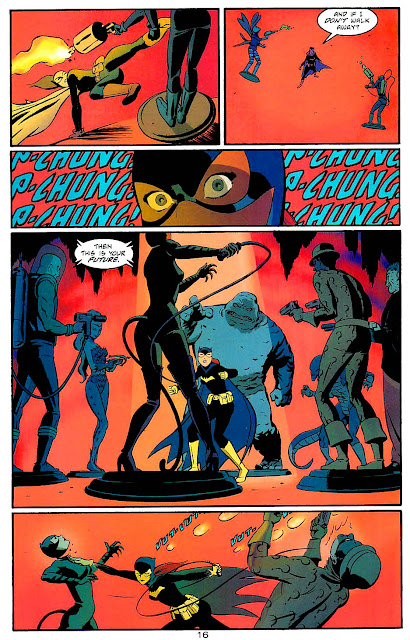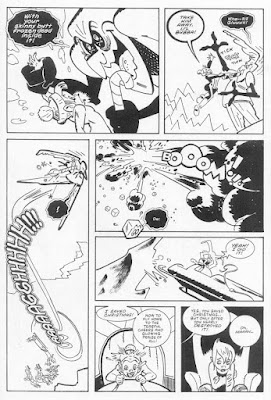In 2020's OUT WITH THE BAD WILL, IN WITH THE GOOD PT. 3, I formulated an assortment of tropes that described ways in which the four persona-types diverged from their dominant configurations: that "heroes" and "demiheroes" are usually good (that is, beneficial to the society) while "villains" and "monsters" are usually evil (detrimental to the society). Here are a couple more examples of exceptions to the dominant rule.
Most of the characters in Ray Bradbury's SOMETHING WICKED THIS WAY COMES and its film adaptation are easily aligned: all of the denizens of Green Town are demiheroes, while all of the creatures from Mister Dark's carnival are monsters. The one character who's a little difficult to place is that of Tom Fury, the lightning-rod salesman. In the early chapters of WICKED, Bradbury's early chapters don't make Fury seem as mundane as the Green Town citizens; if anything, he talks like some sort of mad prophet when he first addresses Will and Jim. Mad prophets, who represent some order outside the bubble of the society, often if not always align with the tonality of the monster, albeit one that expouses some ideal higher or more unique than the society's dominant moral order. In the book Bradbury disperses Fury's supernatural aura and has him neutralized. Fury succumbs to the carnival's temptations and becomes a dwarf, sort of a lesser monster, and plays no further role in the narrative. But the movie makes Fury the representative of some uncanny power that's never defined, as shown by Dark's attempt to torture him into compliance. The film concludes Fury's arc by having him break free of his bondage and destroy Dark's chief henchwoman the Dust Witch. Even in this arc, Fury is too erratic to register as a hero and too unusual to register as a demihero, and so I list him among my "beneficent monsters."
Melville's Captain Ahab proves even more difficult to categorize. Like Tom Fury, Ahab's certainly set apart from ordinary whalers who are simply pursuing profit. He's given an "evil" aura merely by sharing the name of a Biblical king who's supposedly one of the foes of God, but his action of hunting the particular whale who maimed Ahab is not "villainous" as such. Melville sometimes confers a certain heroic aura upon Ahab, but if Ahab's quest doesn't have an evil influence upon society, it doesn't have any good impact either. Thus I find that Ahab has become a monster as a result of questing after a monster. Moby Dick's godlike indifference to the suffering he inflicts upon Ahab is mirrored by the whale's hunter (and co-star in the novel). Ahab brings about the deaths of almost everyone on board the Pequod, not least the cabin-boy Pip, with whom Ahab almost regains some of his natural human feeling. He isn't therefore a "good monster" like Tom Fury, though Ahab's aura of tragic waste ennobles him somewhat. At the very least, that aura keeps Ahab from being consigned to the same circle of Hell that contains Doctor Moreau, the Invisible Man and the Baron Frankenstein of the Hammer "Frankenstein" series.

































